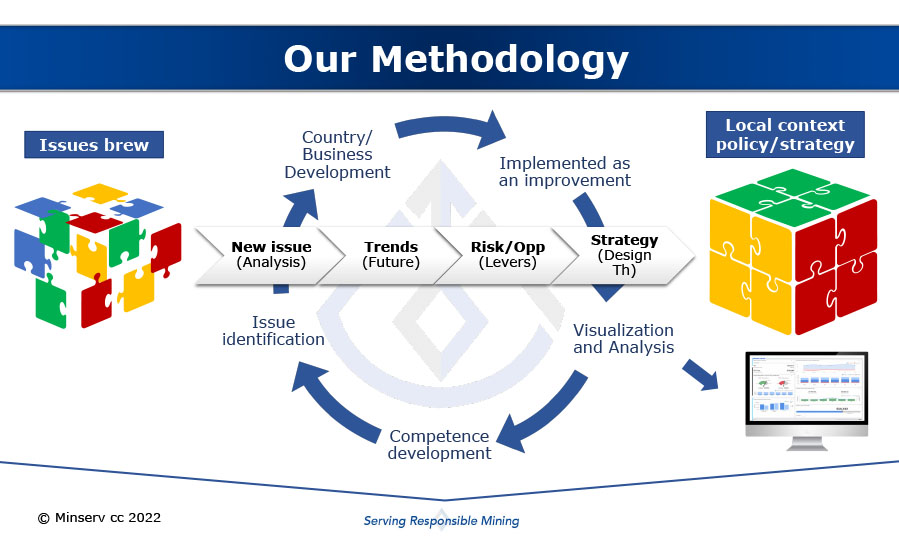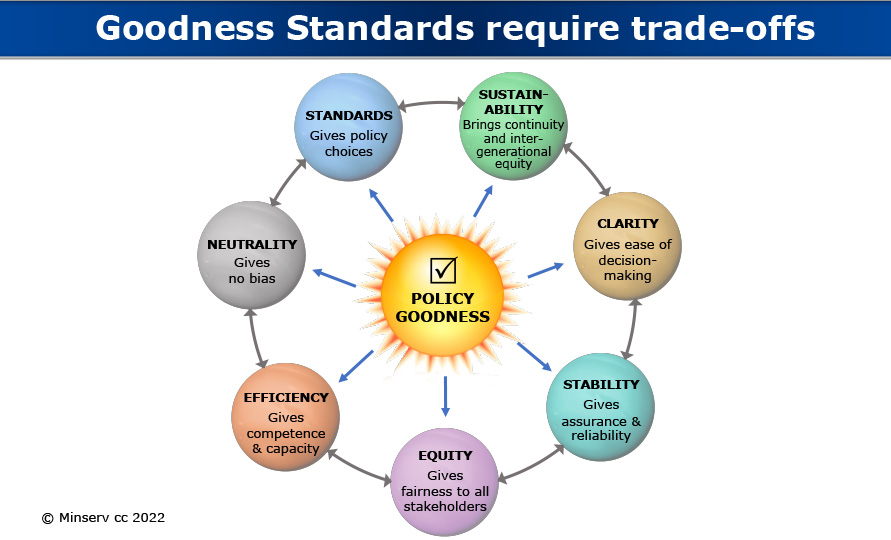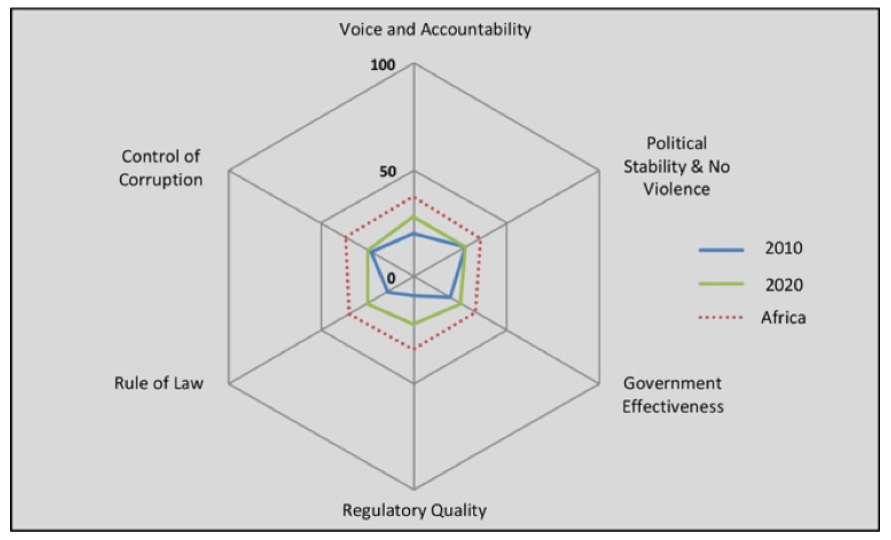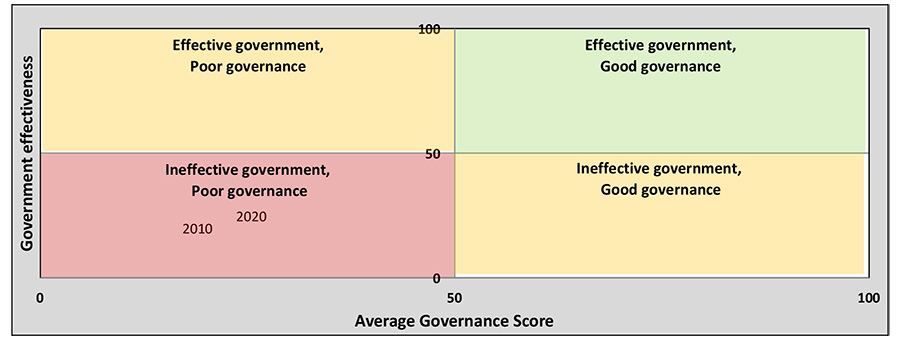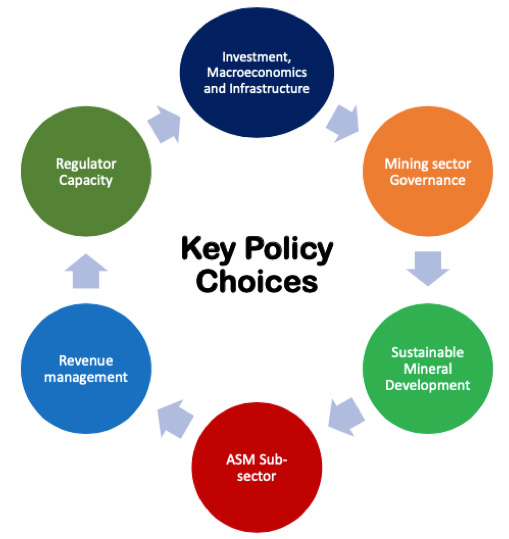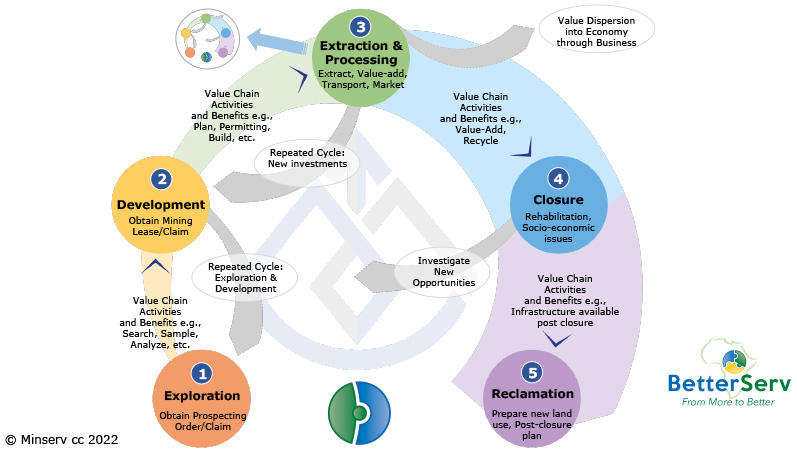Enabling the mining life cycle to unlock value and benefit for an African developing country context
Overview:
Minserv was approached by an international funding institution to develop policy choices on how the typical underperforming African country could unlock benefit through an accelerated mineral development strategy. More particularly, to develop lessons from local experiences and international leading practice on governance practices to unlock investments in mining while setting the stage for inclusivity and benefit. Minserv developed a tailored approach to support and inform a national mining dialogue and advise policy makers to lay the foundation for citizen benefit.
Policy advisory research is a core offering of Minserv, with extensive experience in working with international and academic institutions, governments and industry. For this specific country there was an earlier assignment as part of a brainstorming session on potential improvements to the national mining fiscal regime. Assignments like these are good fits for the common elements of all our business services, namely Strategy, Research and Future-ready.
The project entailed understanding country and international lessons to first, emphasise the benefits of good governance, second, propose a strategic approach to unlock investments in mining while setting the stage for inclusivity and benefit and third, crystalising the value proposition of a good regulatory framework as:
- An enabled mining life cycle
- Responsible mining practices
- Value chain creation and stimulation
- From Clutter to Better
- Linking partners and collaborators
Objective:
The objective was to reflect on the current mining sector situation in the country, how it compares internationally, building on what’s good and provide strategic policy choices for discussion, consideration and implementation.
Approach:
Policy instruments are like ingredients when preparing food. The impact of a single element is reduced when a ‘brew’ is cooked up. In the African policy space, many new instruments were ‘stirred’ into the policy mix over time. Such new issues caused loss of original intent and sometimes perverse outcomes. In the spirit of ‘less is more’, Minserv acknowledges that the continental principles that were developed early in the 21st century through the various documents are sound and people-centric, but require ‘tweaking’ and alignment with the opportunities and risks posed by the 21st century. This requires a pragmatic approach, where policy, technology and partnerships enable a better future for the sustainable development of the continent. It is almost like solving a Rubik cube, i.e. to integrate new issues in a way that align these with current policy themes further, rather than spoiling the policy mix by stirring the pot and cooking up a brew. Better policy is preferred above the utopian paradise of ideal. Better is also more appropriate considering that African living conditions on most of the continent are barely ‘livable’.
For this specific assignment, the approach followed was to describe and evaluate the mining investment environment to decide on whether (or not) the sector is performing in line with its resource potential and how it contributes to the national ambition and citizen well-being. An international comparative analysis was next in order to identify potential policy gaps and shortcomings before recommending the policy choices for achieving sector ambitions and improving citizen well-being.
Key Results:
The key results were that first, Less is More when it comes to policy change, second national dialogue is essential for stakeholder buy-in, and third, four issues will trigger opportunity, namely:
- Align the country vision with the mineral governance system
- Do more to enable the mining life cycle and stimulate mining value and supply chains
- Align the investment and fiscal regimes with the mineral law and policy framework
- Develop capacity for a strong regulator to support and enforce responsible mining
Conclusion:
The high-level conclusion of this study was that, despite above-average mineral potential, concerns on mineral governance are suspending opportunity for national benefit and more must be done to enable the mining life cycle.
Good policy is country specific and requires balancing conflicting objectives
Change in country governance relative to African averages (World Bank indicators)
Change in country mineral governance system over time (Fraser Institute indicators)
Country specific approach for accelerated growth and sustainable development
Enabling the mining life cycle and value chain development
© Minserv For more information contact: fred@minservcc.com

